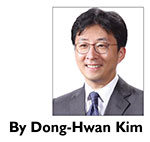 Warning letters issued to customers of an alleged infringer Issuance of a cease and desist letter is usually recognised as the first step to be taken by a patentee against an alleged infringer in a patent infringement dispute in Korea. A warning letter to an alleged infringer puts such person on notice and serves the purpose of establishing the infringer’s intent or bad faith if the conduct persists. This would be useful in a subsequent law suit. Furthermore, a warning letter opens up the possibility of an amicable settlement of the dispute, with minimal time and expense. Patentees sometimes also consider sending a letter directly to customers or suppliers of an alleged infringer, in the hope of maximising pressure on the alleged infringer. However, Korean courts have been sensitive to the abusive use of a warning letter sent to clients of infringers and have rendered decisions highlighting the risk of using this tactic. Trend of Korean court decisions Recent district court decision Comments |
Lee International IP & Law Group
Poongsan Bldg. 23 Chungjeongro
Seodaemun-gu
Seoul 03707, Korea
Tel: 82 2 2262 6059
Fax: 82 2 2273 4605
Email: dhkim@leeinternational.com
Website: www.leeinternational.com

